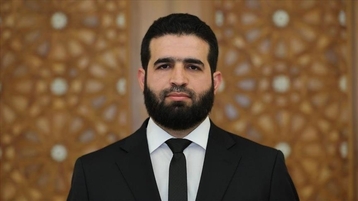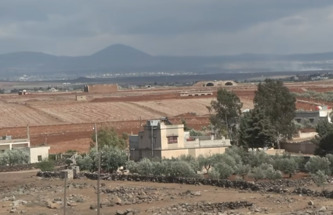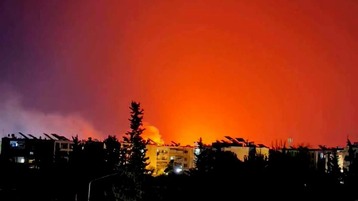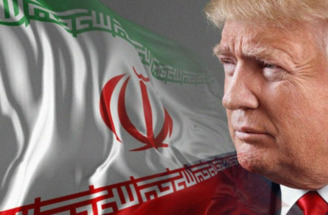-
Damascus Evades Supporting Hezbollah: Interest Calculations Outweigh Loyalty
-
The Syrian regime's brief statement highlights a stark contrast between the significant military support provided by Hezbollah and the political hesitation in showing full solidarity with it in a mome

The Syrian regime's long silence, followed by a brief statement about the killing of Hassan Nasrallah, the leader of the Lebanese Hezbollah, has raised numerous questions about the nature of the relationship between the allies and the Syrian regime's calculations in the current stage. After more than 24 hours since the incident, the first official Syrian comment came in a statement not exceeding fifty words.
The noticeable delay and lukewarm response reflected a state of hesitation and caution from the Syrian regime, which seems to be trying to balance between the duty of showing solidarity with its most prominent ally and the desire to avoid any regional or international escalation that might harm its interests.
Ironically, Hezbollah, which played a pivotal role in supporting the Syrian regime and preventing its fall in the face of popular protests that erupted in 2011, did not receive a strong and clear stance from its ally in Damascus at this critical moment. The Syrian statement was limited to general phrases about "sharing in sorrows" and "announcing mourning for three days," without any explicit condemnation of the attack or identification of the responsible party.
The hesitant position revealed complex calculations by the Syrian regime. On one hand, the regime recognizes the size of the debt it owes to Hezbollah, which provided thousands of fighters and crucial military expertise that contributed to stabilizing Bashar al-Assad's rule.
On the other hand, the regime seems to fear the repercussions of any strong position that might lead to new regional or international isolation, especially in light of its recent attempts to reintegrate into the Arab and international environment.
Analysts believe that this hesitant stance may have negative consequences on the relationship between the Syrian regime and Hezbollah, as it shows that the regime's self-interest calculations may outweigh alliance commitments in times of crisis. It may also raise questions within Hezbollah and Iran about the extent to which the Syrian regime can be relied upon as a strategic ally in the future.
On another note, this weak position of the Syrian regime reflects the state of weakness and fragility it still suffers from, despite more than a decade passing since the beginning of the Syrian crisis. The regime, which heavily relied on the support of its external allies, especially Hezbollah and Iran, to quell popular protests and suppress the opposition, finds itself today unable to take a strong position in favor of these allies.
It appears that the Syrian regime is trying to maneuver in turbulent regional and international waters, ignoring the crucial role played by its allies in its survival. This approach may achieve some short-term gains for the regime, but it threatens to undermine trust between allies and weakens the regime's position in the long term. The question remains: Will the Syrian regime be able to continue this fluctuating policy without paying a heavy price from its allies in the near future?
Levant - Follow up
You May Also Like
Popular Posts
Caricature
BENEFIT Sponsors BuildHer...
- April 23, 2025
BENEFIT, the Kingdom’s innovator and leading company in Fintech and electronic financial transactions service, has sponsored the BuildHer CityHack 2025 Hackathon, a two-day event spearheaded by the College of Engineering and Technology at the Royal University for Women (RUW).
Aimed at secondary school students, the event brought together a distinguished group of academic professionals and technology experts to mentor and inspire young participants.
More than 100 high school students from across the Kingdom of Bahrain took part in the hackathon, which featured an intensive programme of training workshops and hands-on sessions. These activities were tailored to enhance participants’ critical thinking, collaborative problem-solving, and team-building capabilities, while also encouraging the development of practical and sustainable solutions to contemporary challenges using modern technological tools.
BENEFIT’s Chief Executive Mr. Abdulwahed AlJanahi, commented: “Our support for this educational hackathon reflects our long-term strategic vision to nurture the talents of emerging national youth and empower the next generation of accomplished female leaders in technology. By fostering creativity and innovation, we aim to contribute meaningfully to Bahrain’s comprehensive development goals and align with the aspirations outlined in the Kingdom’s Vision 2030—an ambition in which BENEFIT plays a central role.”
Professor Riyadh Yousif Hamzah, President of the Royal University for Women, commented: “This initiative reflects our commitment to advancing women in STEM fields. We're cultivating a generation of creative, solution-driven female leaders who will drive national development. Our partnership with BENEFIT exemplifies the powerful synergy between academia and private sector in supporting educational innovation.”
Hanan Abdulla Hasan, Senior Manager, PR & Communication at BENEFIT, said: “We are honoured to collaborate with RUW in supporting this remarkable technology-focused event. It highlights our commitment to social responsibility, and our ongoing efforts to enhance the digital and innovation capabilities of young Bahraini women and foster their ability to harness technological tools in the service of a smarter, more sustainable future.”
For his part, Dr. Humam ElAgha, Acting Dean of the College of Engineering and Technology at the University, said: “BuildHer CityHack 2025 embodies our hands-on approach to education. By tackling real-world problems through creative thinking and sustainable solutions, we're preparing women to thrive in the knowledge economy – a cornerstone of the University's vision.”
opinion
Report
ads
Newsletter
Subscribe to our mailing list to get the new updates!





















